Observing Nakba Day
Posted in: About Anera, Life in the Middle East
For Palestinians around the world, May 15th marks the “Nakba” (literally “disaster” or “catastrophe” in Arabic) which commemorates the 1948 Palestinian exodus during the establishment of the State of Israel.
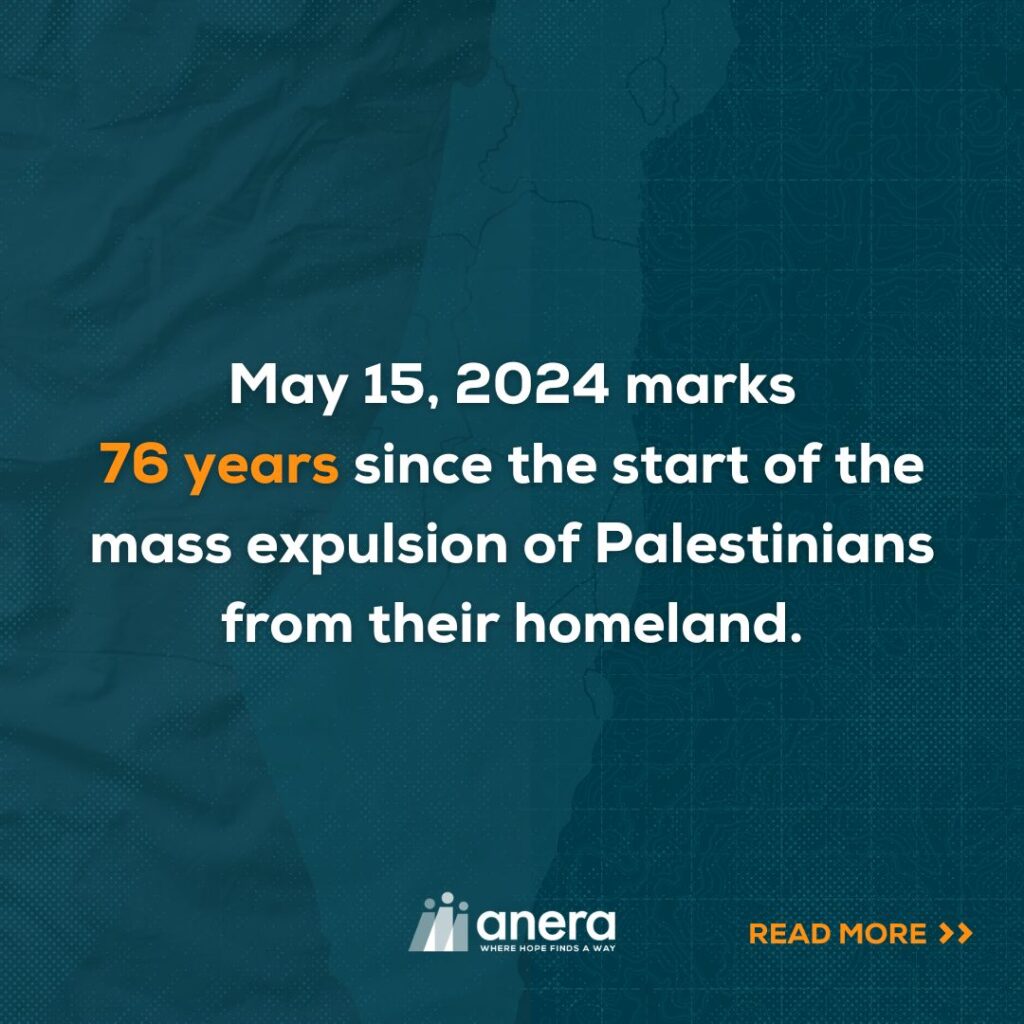

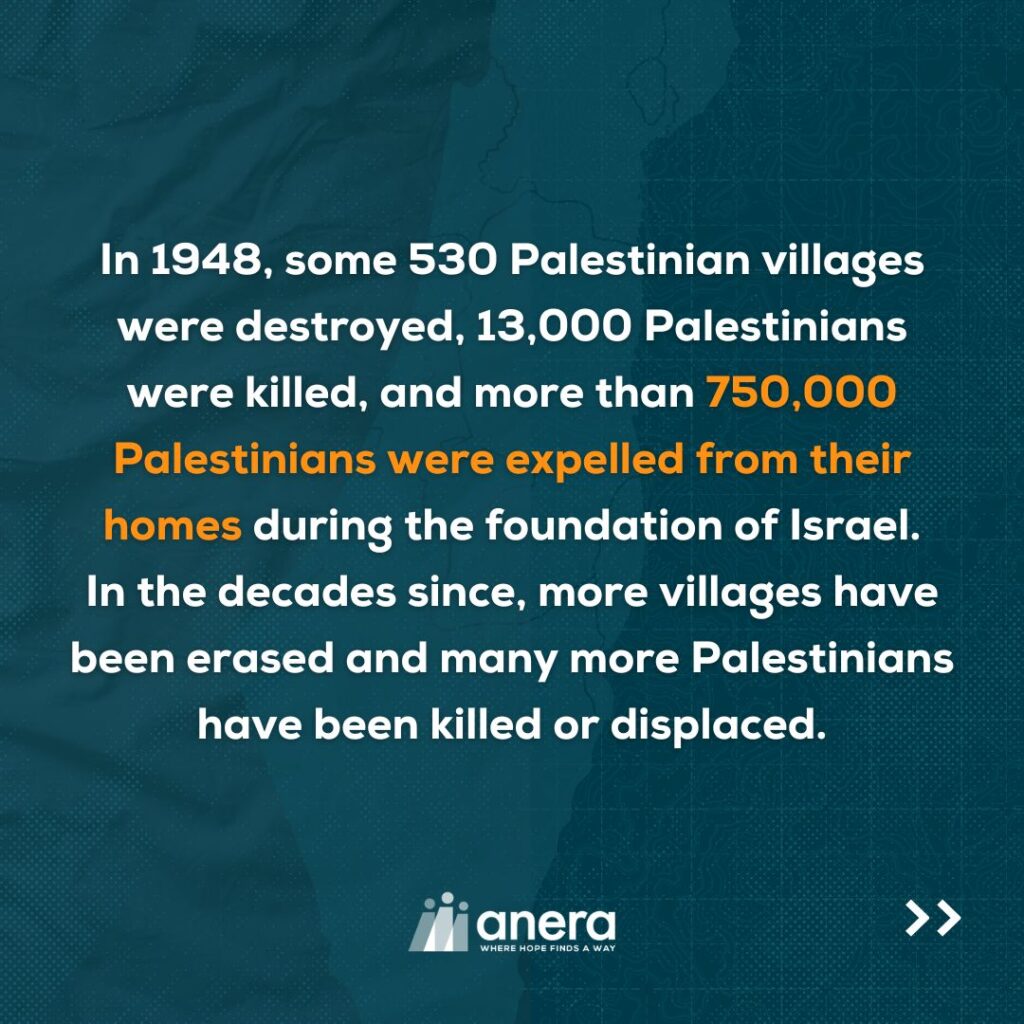

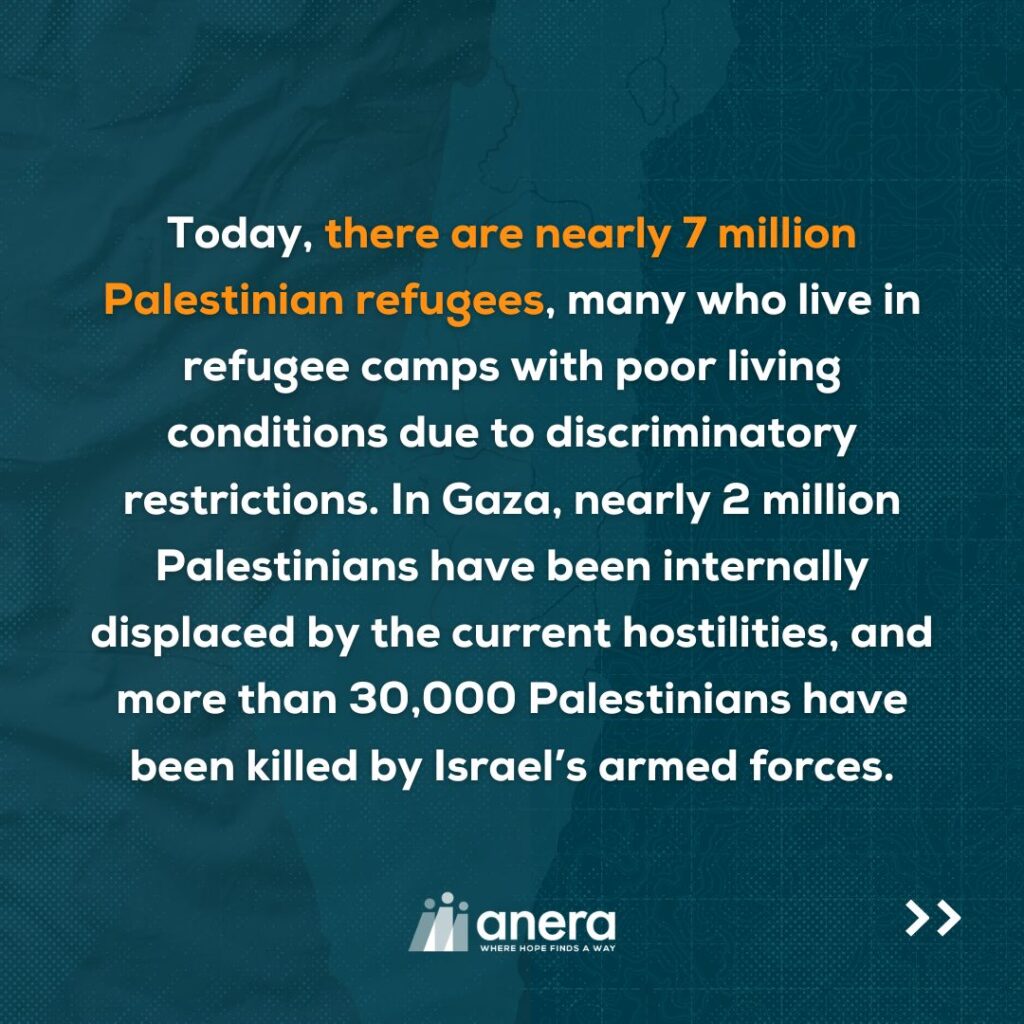

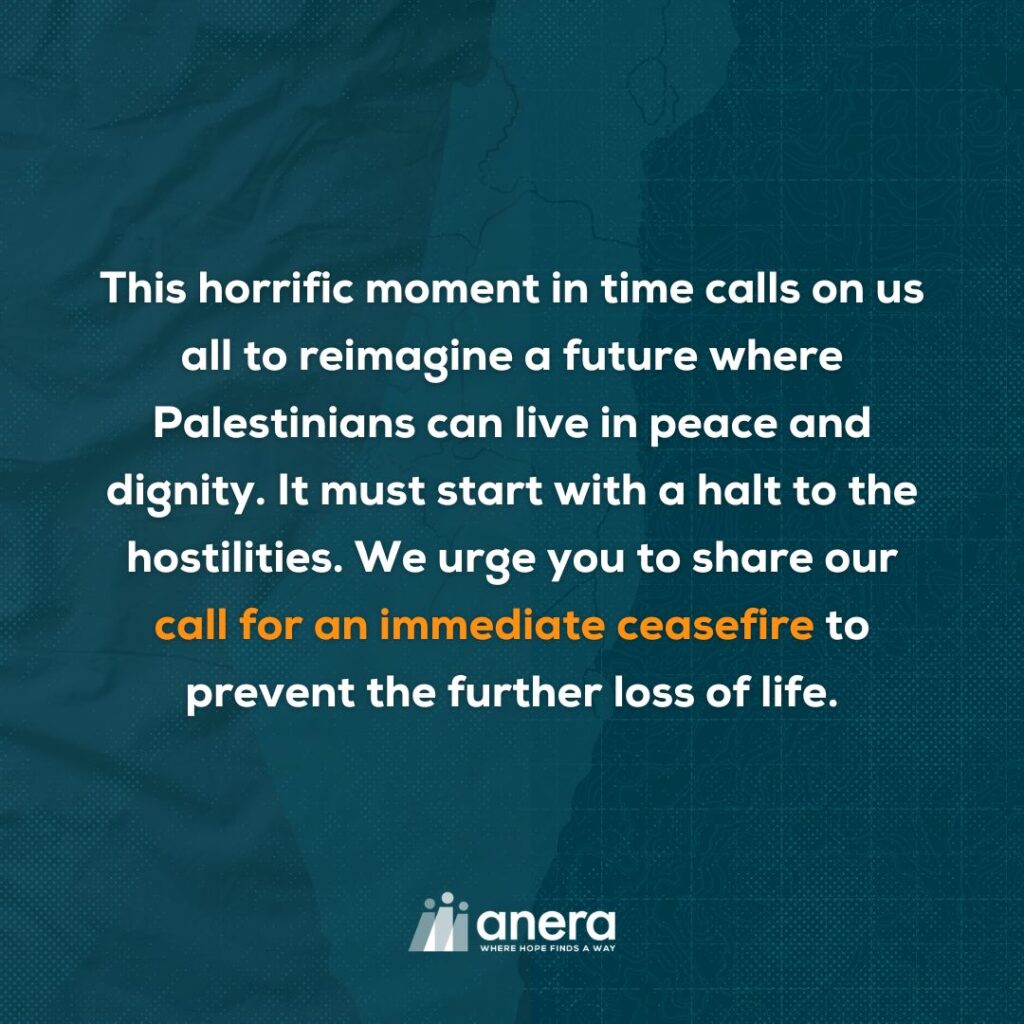

Nakba Day 2022
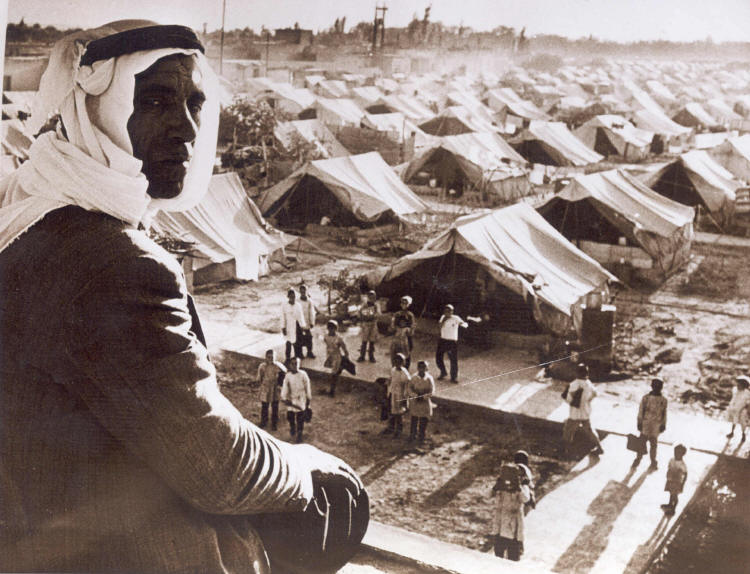

Photo credit: Wikimedia Commons
For Palestinians around the world, May 15th marks the “Nakba” (literally “disaster” or “catastrophe” in Arabic) which commemorates the 1948 Palestinian exodus during the establishment of the State of Israel. The resulting humanitarian crisis has affected geo-politics, individual states, the environment and human development in the Middle East and beyond for 71 years.
It was in the aftermath of the 1948 Arab-Israeli War that an early precursor to Anera, American Middle East Rehabilitation (AMER) – now Anera’s medical donation program – started delivering donated medicines and medical supplies to Palestinians living in refugee camps. AMER was founded by a group of prominent Arab-Americans and was led by Dr. Emmett Holt, a distinguished New York pediatrician, and assisted by Arab-American physician Dr. Rosa Lee Nemir.
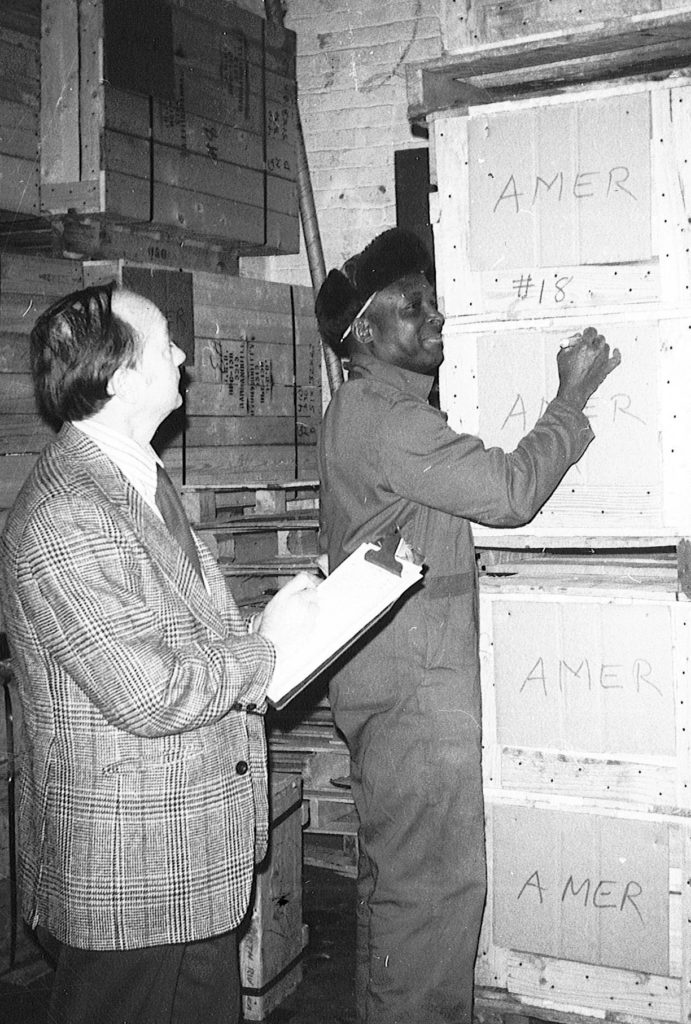

Following the 1967 War and second Palestinian exodus – known to Palestinians as the “Naksa” or “setback” – the most influential organization created in response was Near East Emergency Donations (NEED). NEED was an American corporate initiative responding to high-level political encouragement for large-scale assistance to Palestinian refugees. Former Presidents Dwight Eisenhower and Harry Truman became honorary co-chairmen of NEED, and Time, Inc. President James A. Linen became NEED’s president. NEED made clear its intention to raise as much money as it could in a short time, give it away, and go out of business. The United Nations Relief and Works Agency for Palestine Refugees (UNRWA) was the principal recipient of NEED’s estimated $10 million distribution, but a portion went to a fledgling organization called Anera.
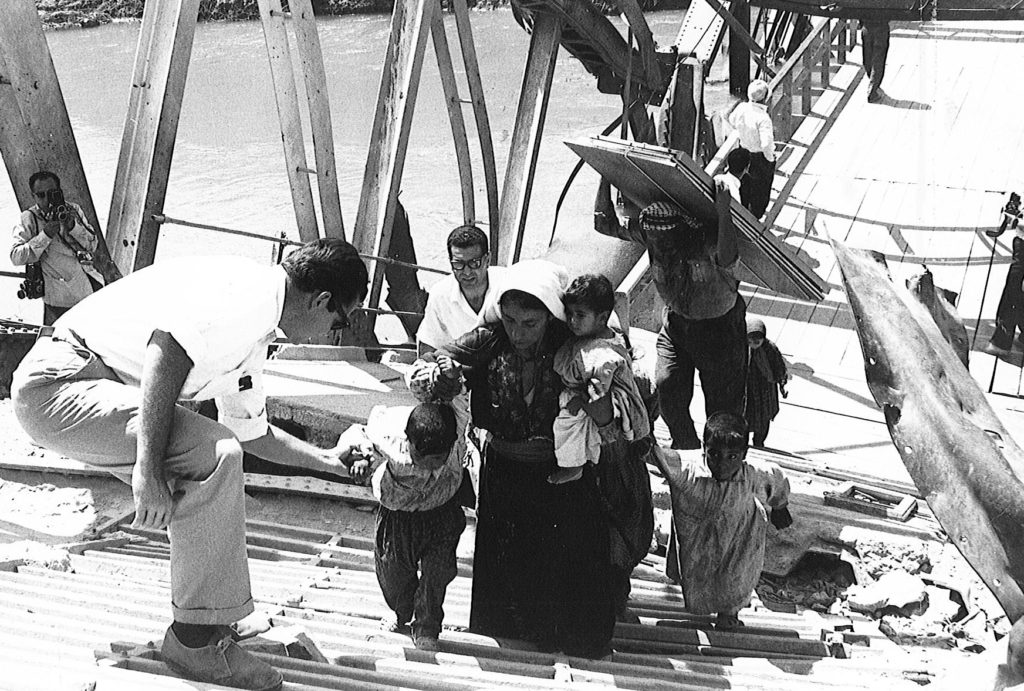

Founded by a small group of influential Arab-Americans in 1968, American Near East Refugee Aid (or Anera) combined the efforts of previously existing Palestinian aid organizations. The groups who made a tentative commitment to be the founding members of Anera were the American Friends of the Middle East (AFME) in Washington, D.C., the American Middle East Rehabilitation (AMER) in New York (discussed above), the Arab Emergency Relief Committee in D.C., the Arab Refugee Relief Agency in Michigan, the Islamic Foundation in Southern California, US OMEN in California, and the United Arab-American Appeal in Massachusetts. Using the funds donated by NEED, Anera began decades of committed work responding to the critical needs of the Palestinian people.
Today with a staff of 110 development professionals throughout Palestine, Lebanon and Jordan, Anera is able to respond to the critical needs of Palestinians, Syrians, Lebanese and Jordanians. We are proud that our roots are in both Palestine and the United States. Although Anera has grown in capacity to help other vulnerable communities in the Levant, we will always remain grounded in our dedication to Palestinian refugees and their issues.
Parts of this piece are excerpted from Anera’s First Executive Director, John Richardson’s booklet How Anera Came to Be.
OUR BLOG
Related
In this log, Anera provides updates on unfolding war in Palestine and our response. In some cases, additional activities may be added retroactively to the daily entries as we receive additional program reporting. Questions? See our FAQ page July 10,…
